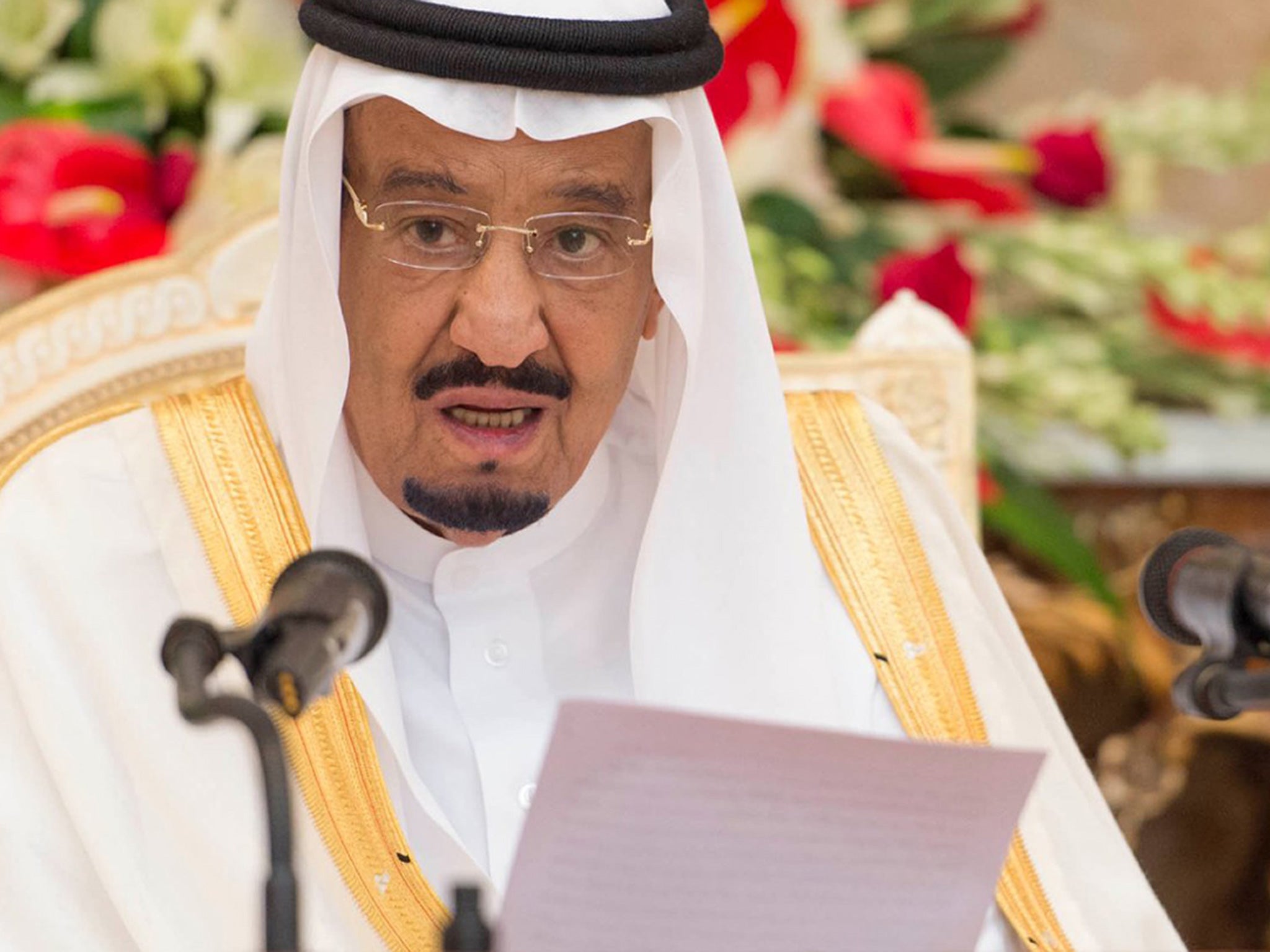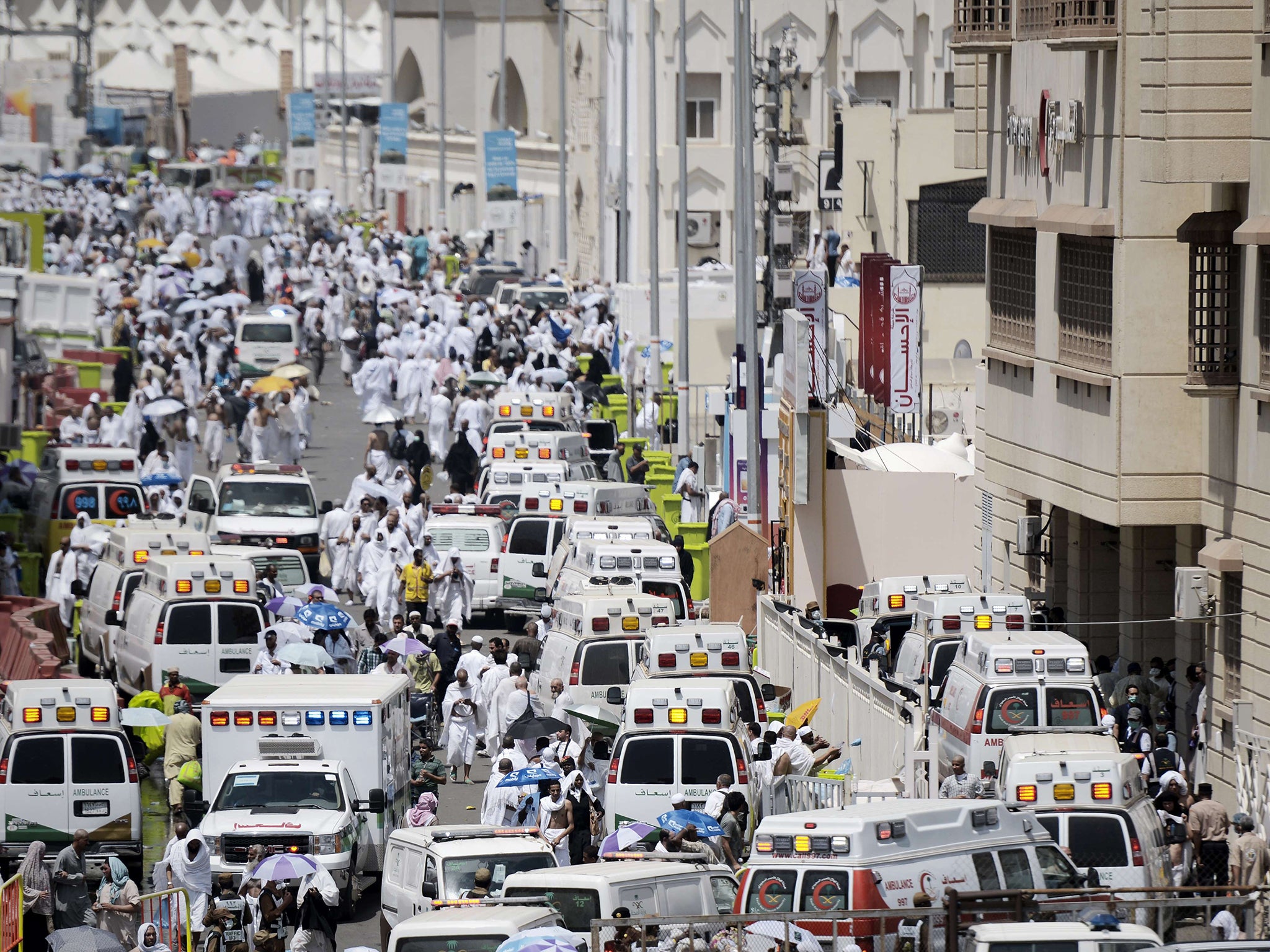Your support helps us to tell the story
From reproductive rights to climate change to Big Tech, The Independent is on the ground when the story is developing. Whether it's investigating the financials of Elon Musk's pro-Trump PAC or producing our latest documentary, 'The A Word', which shines a light on the American women fighting for reproductive rights, we know how important it is to parse out the facts from the messaging.
At such a critical moment in US history, we need reporters on the ground. Your donation allows us to keep sending journalists to speak to both sides of the story.
The Independent is trusted by Americans across the entire political spectrum. And unlike many other quality news outlets, we choose not to lock Americans out of our reporting and analysis with paywalls. We believe quality journalism should be available to everyone, paid for by those who can afford it.
Your support makes all the difference.The Hajj stampede disaster has put further strains on the ruling al-Saud family. As it attempts to contain the fallout by ordering an immediate investigation and promising quick results, evidence is mounting that – despite efforts to blame crowd indiscipline – it is the authorities who are most at fault.
Eye witnesses have described apparently inexperienced and unprepared police and emergency workers. Even more damaging is the allegation that the disaster was caused by two key roads being closed off to accommodate members of the royal family.
This tragedy comes hard on the heels of a crane falling onto the roof of Mecca’s Grand Mosque, killing 107 people. It also comes just a week after a letter, said to be from a senior Saudi prince, was circulated via the Twitter account of @mujtahidd, a dissident who has frequently leaked embarrassing details of feuds within the family.
The letter called for the 13 surviving sons of King Abdulaziz, the founding ruler, to demand the removal not only of King Salman – crowned earlier this year – but also of Mohammed bin Nayef, who is the Crown Prince and Interior Minister, and of Mohammed bin Salman, the king’s favoured son.
MbS, as he is known, serves as Defence Minister, chair of the all-powerful Council for Economic and Development Affairs, and as deputy Crown Prince.
The letter speaks of “the impotence” of King Salman, who is reportedly suffering from dementia, calls Mohammed bin Nayef “arrogant” and the king’s son “a rotten robber”. It also criticises the Saudi-led war in Yemen, which began six months ago today. It was MbS, at 28 or 29 (opinions vary) the world’s youngest minister of defence, who first proposed the war. The letter sneeringly refers to him as “the teenager”.

In the febrile atmosphere of the court, the decision to lead a coalition of Gulf countries in an air campaign against Yemen’s Houthi rebels was ultimately Mohammed bin Salman’s. A quick strike to break the back of the rebellion would have gone a long way to cementing his son’s claim to be the worthiest heir to the throne.
But the war has not ended quickly. And as the bombing campaign continued, the Saudis and their allies have not shown themselves to be overly concerned about the civilian casualties, the destruction of water filtration plants, the blockade of food and medical supplies and the overall degrading of the infrastructure of one of the world’s poorest countries.
With the return of Yemen’s President Hadi to the port city of Aden earlier this week – having fled to Saudi Arabia at the beginning of the war – the Saudis can claim some measure of success, but at a very high price to the people of Yemen. They are caught between the Houthis, who have shown themselves equally capable of targeting civilians, and the Saudis and their allies. Thousands have died, more than a million are internally displaced and the country is on the brink of famine. MbS’s rivals see the war as a blunder by him and an opportunity for them.
It is in the context of the Yemen war and a developing family power struggle within the family that the Hajj disaster needs to be seen.
King Salman is the custodian of Islam’s two holiest shrines. With two tragedies in two weeks, his stewardship has been little short of catastrophic. When the kingdom’s Health Minister called the tragedy “an act of God”, a UK -based Hajj tour operator, Mohammad Jafari, spoke for many when he told the BBC’s Today programme: “This was not God’s will, it was man’s incompetence.”
With a young hot-head in charge of a war with no end in sight, the Crown Prince in charge of the probe into what went wrong and a family bitterly divided, the competence of the House of Saud is in question as never before.
Bill Law is a Middle East analyst and Gulf affairs specialist at thegulfmatters.com
Twitter: @BillLaw49

Join our commenting forum
Join thought-provoking conversations, follow other Independent readers and see their replies
Comments